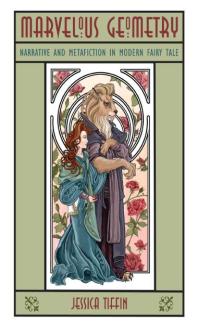

Most ebook files are in PDF format, so you can easily read them using various software such as Foxit Reader or directly on the Google Chrome browser.
Some ebook files are released by publishers in other formats such as .awz, .mobi, .epub, .fb2, etc. You may need to install specific software to read these formats on mobile/PC, such as Calibre.
Please read the tutorial at this link. https://ebooknice.com/page/post?id=faq
We offer FREE conversion to the popular formats you request; however, this may take some time. Therefore, right after payment, please email us, and we will try to provide the service as quickly as possible.
For some exceptional file formats or broken links (if any), please refrain from opening any disputes. Instead, email us first, and we will try to assist within a maximum of 6 hours.
EbookNice Team

Status:
Available0.0
0 reviews
ISBN-10 : 0814335721
ISBN-13 : 9780814335727
Author: Jessica Tiffin
Explores self-consciousness and metafictional awareness in modern fairy tale and its expression across literary fairy tale, popular fairy tale, and fairy-tale film. In Marvelous Geometry Jessica Tiffin argues that within twentieth- and twenty-first-century Western literature there exists a diverse body of fairy-tale texts that display a common thread of metafictional self-awareness. The narrative pattern of these texts is self-conscious, overtly structured, variously fantastical, and, Tiffin argues, easily recognized and interpreted by modern audiences. In this broadly comparative study she explores contemporary fairy-tale fictions found in modern literature and live-action and animated film and television to explore fairy tale's ability to endlessly reinvent itself and the cultural implications of its continued relevance. Tiffin's skilled analysis draws on the critical fields of postmodernism, narratological analysis, stucturalism, feminism, and performativity, without relying solely on any one perspective. She considers important fairy-tale retellings such as the feminist revisions of Angela Carter, the postmodern narratives of A. S. Byatt, as well as fairy tales written for children by James Thurber. She also investigates both popular and high-art films, contrasting Cocteau and Neil Jordan to Hollywood romances and Disney, and analyzes the differences between animated features and live-action productions. Finally, Tiffin uses a case study of the recent successful Shrek films to situate the fairy tale in the twenty-first century as an endlessly adaptable folk narrative that self-consciously and affectionately reflects generic structures and significant cultural assumptions. Marvelous Geometry covers a wide range of familiar and unfamiliar primary texts from a novel and fruitful perspective. Tiffin's focus on the metafictional nature of the fairy tale turns readers' attention to the genre's narrative structure and aesthetic qualities without ever losing sight of the fairy tale's sociocultural impact as powerful marvelous narrative. Scholars of literary and fairy-tale studies will enjoy Tiffin's expansive analysis.
1. Telling Theoretical Tales
2. Nice and Neat and Formal: James Thurber
3. The Bloodied Text: Angela Carter
4. Caught in a Story: A. S. Byatt
5. Structured Sword and Sorcery: The Popular Fairy Tales of Lee, Pratchett, and Tepper
6. Magical Illusion: Fairy-Tale Film
7. “Happily Ever After”: Fairy Tale as Popular Parody
geometry – naruto
the geometry of miracles
naruto and metal gear fanfiction
pov y/n and mattheo
quaver geometry dash
Tags: Marvelous Geometry, Narrative, Metafiction, Modern Fairy Tale, Jessica Tiffin